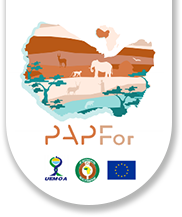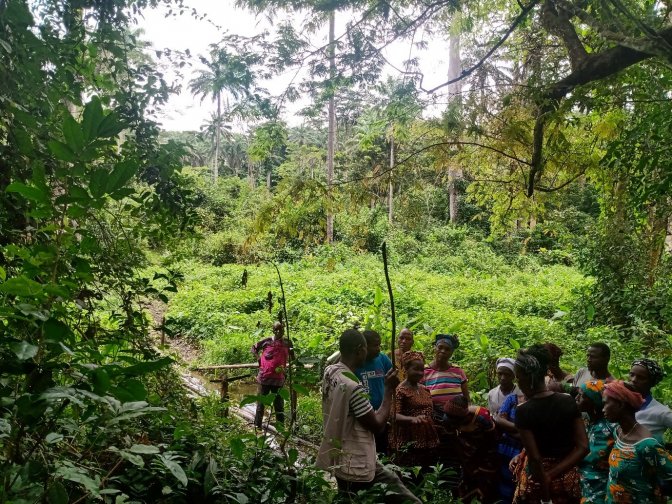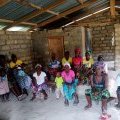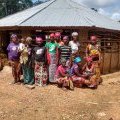Home / News / WWZ FFI consultson setting up integrated agriculture and aquaculture (IAA) (...)
WWZ FFI consultson setting up integrated agriculture and aquaculture (IAA) systems in Liberia’s WWZ landscape
In July 2022, Fauna & Flora International (FFI) conducted a series of consultative meetings for a feasibility study to determine the potential impact of implementing integrated agriculture-aquaculture fishpond systems in Wologizi-Wonegizi (WW), on the Liberian side of the transboundary WWZ landscape supported by the Preservation of Forest Ecosystems in West Africa Programme (PAPFor).
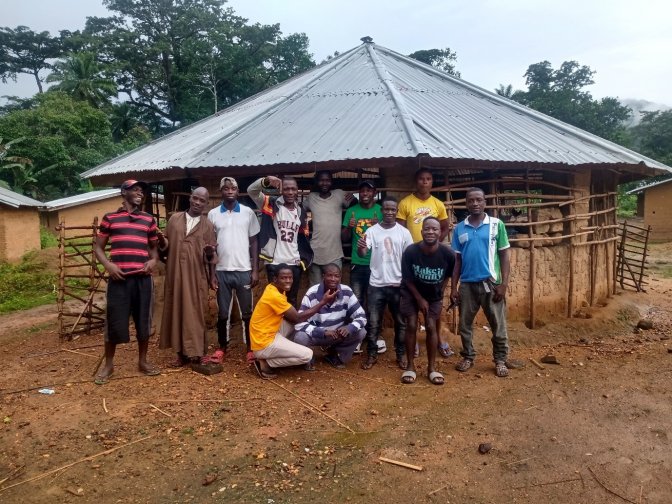
Integrated agriculture-aquaculture (IAA) is a farming system combining aquaculture with other sustainable agricultural practices to improve food production, conserve the environment and ensure food security. It can generate synergies between farmers encompassing agriculture, aquaculture and households, for example by using nutrient-rich water from aquaculture to help fertilise crops.
So far, the meetings have consisted of expert consultations engaging the primary institution in the Integrated Agriculture Aquaculture-IAA Sector in Liberia to capture lessons learned on similar interventions and community workshops to understand biodiversity context, concerns, considerations, and options with regards to closed pond aquaculture implementation in the landscape.
_
These consultative meetings aim to enable FFI to develop a robust intervention in harmony with biodiversity conservation and community livelihood in northwest Liberia and elsewhere. The meetings with stakeholders and experts also aimed at determining potential risks and benefits of aquaculture pond implementation in the landscape to be explored through a biodiversity conservation and livelihood development lens. A recommendation of villages or sites for possible IAA implementation is underway.
Meanwhile, focus group discussions were carried out during the consultative meetings in three enclave communities of WW - Barwen, Kargbota and I-mah. Among other issues covered, these discussions assessed the community’s understanding and information about IAA systems as well as gauging their interest. Another objective of the discussions was to collaboratively reflect on gender-sensitive approaches to implementing IAA projects in the communities.
The discussions engaged a broad cross-section of the community, including men, youth, women, elderly people, hunters, landlords and local community leaders, all of whom gave their views and suggestions on suitable practices to ensure the adaptation of IAA systems in their communities in the future. Women and men were separated into different sessions to allow women to effectively offer their views on the new technology envisaged within their communities. The participants believe that the introduction of the IAA is a livelihood intervention they have long been waiting for in providing additional protein and carbohydrates for the people.
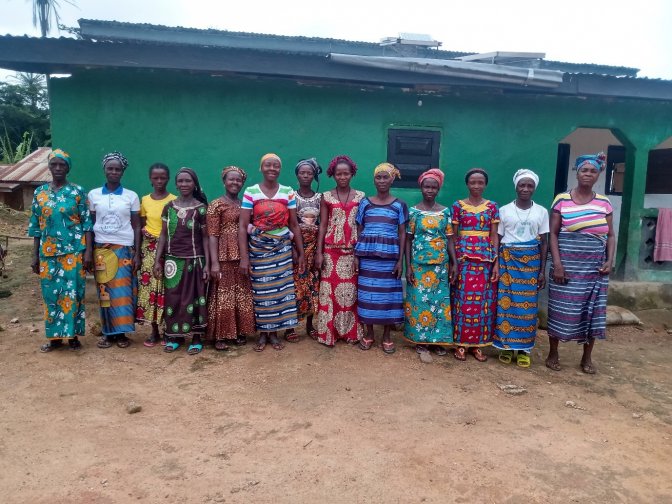
Before the lowlands suitability assessments and closing of the discussions, the communities’ residents and leadership praised FFI and partners for including and working with the community to ensure the successful implementation of the proposed IAA project. They look forward to seeing it being implemented soon in their communities.
